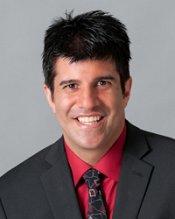College Counseling: Well intentioned but bad advice can lead to terrible consequences
By Daryl CapuanoCollege Counseling“I don’t know. I need to know more. A lot more. And then I give you expert advice. Otherwise, I will be glib but not thoughtful and that could lead to poor advice.”
I say some version of the above at least once or twice per week. The most popular topic of conversation among parents is their children and once they reach junior year of high school, college is the most popular sub-topic.
Given my college counseling work, I will get e-mails/calls from various people who know me from different walks of life. Prior to Connecticut, I lived in Washington, DC, Philadelphia, and New Jersey (northern suburbs outside of NY). Each of those areas are even more college obsessed so I will field e-mails/calls from old friends-acquaintances:
“What do you think of Elon?”
“Do you think Paul should apply to Fordham?”
“Is Penn State too big?”
Twenty years ago, when I started college counseling, my instinct to help would overcome my better judgment. I would respond and then later try to refine my comments when I learned more information. Or I would regret my initial advice when I realized that I did not ask all the questions I should have asked before advising.
I assure you that most of your fellow parents have no such reservations. They give advice – often well intentioned – but based on their extraordinarily limited sample of their experience. They loved or hated Elon or Fordham or thought Penn State’s size was great or terrible.
The problem is that such amateur advice becomes part of what goes on in the mind of the stressed parent talking to someone who appears to know what they are talking about.
Trust me, they don’t 🙂
Or at least they don’t in relation to giving professional advice to your child.
The transition to college is too significant to be influenced by those who don’t know enough about your child or the full panorama of colleges to give expert counsel.

CEO, The Learning Consultants and Connecticut’s top private education consultant
full bio

